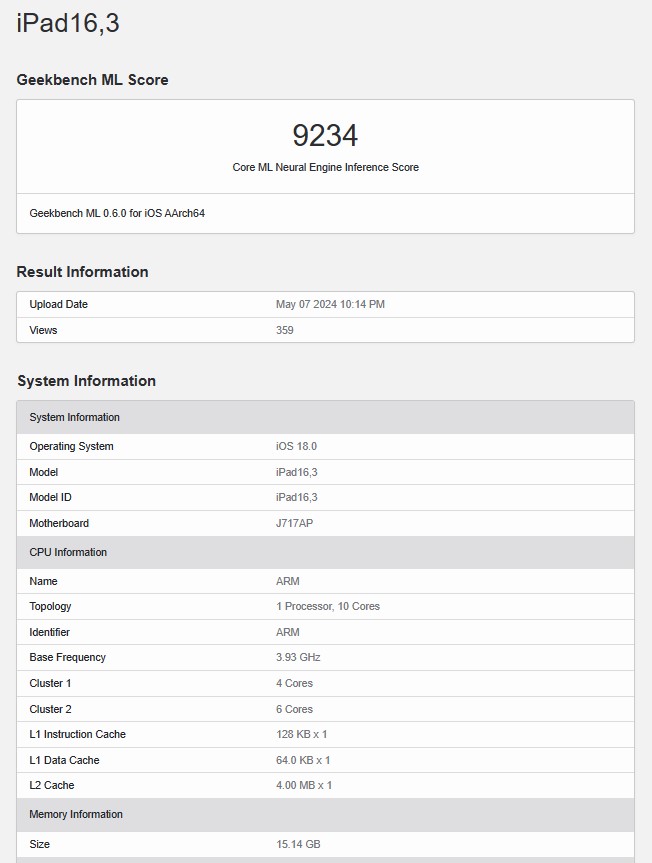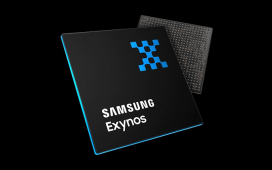A few hours have passed since Apple officially unveiled the M4, and the first iPad Pro featuring the SoC has allegedly been benchmarked on Geekbench 6. Sadly, we cannot compare the single-core and multi-core scores against the M3 or the M2 because the leak revolves around the chipset’s Machine Learning performance, but that does not mean we cannot dive deep and check out its other specifications.
New Geekbench 6 shows that the fastest M4 core is running at 3.93GHz, 3 percent slower than the M3
The M4 iPad Pro that showed up on the benchmarking website features the identifier iPad16,3, which is the first positive evidence hinting that the new model’s scores were uploaded to Geekbench 6. The remaining models feature the designations iPad16,4, iPad16,5, and iPad16,6, with the M2 versions identified with iPad14,3. Even though we cannot gauge the single-threaded or multi-threaded capabilities of the latest iPad Pro, the Machine Learning score obtained by the tablet was 9,234.
The top-end version of the M4 was benchmarked on Geekbench 6, with the chipset sporting four performance and six efficiency cores. With Apple’s latest SoC said to be mass produced on TSMC’s second-generation 3nm process, we would assume that the performance cores’ clock speeds would be higher than the M3’s. Unfortunately, that is not the case here because the new Apple Silicon operates at 3.93GHz, making it 3 percent slower than the M3’s 4.05GHz frequency.

It is possible that due to the M4’s higher CPU core count, Apple might have deliberately reduced those clock speeds to achieve its specific power efficiency target. After all, the ‘4 + 6’ configuration would already consume more power than the M3’s ‘4 + 4’ cluster, so reducing that frequency to 3.93GHz would not just save battery life but have diminishing effects on the performance. Of course, we will find out how these changes translate into real-world results when the first wave of comparisons drops in the coming days, so stay tuned for more updates.
News Source: Geekbench 6











